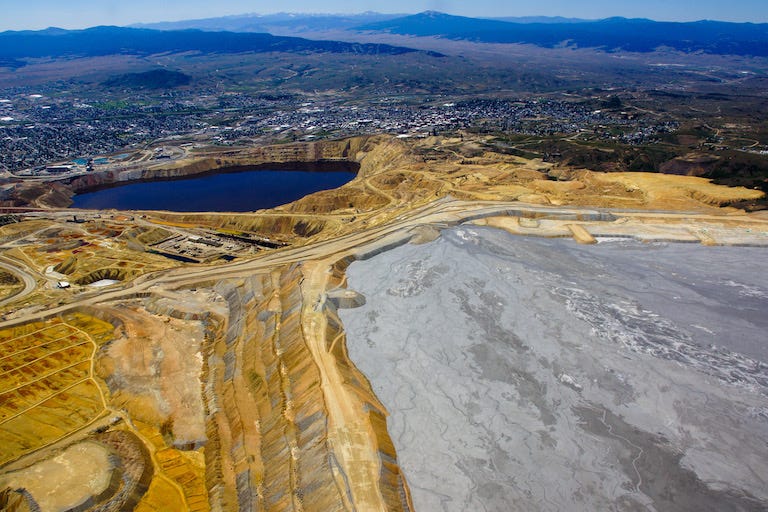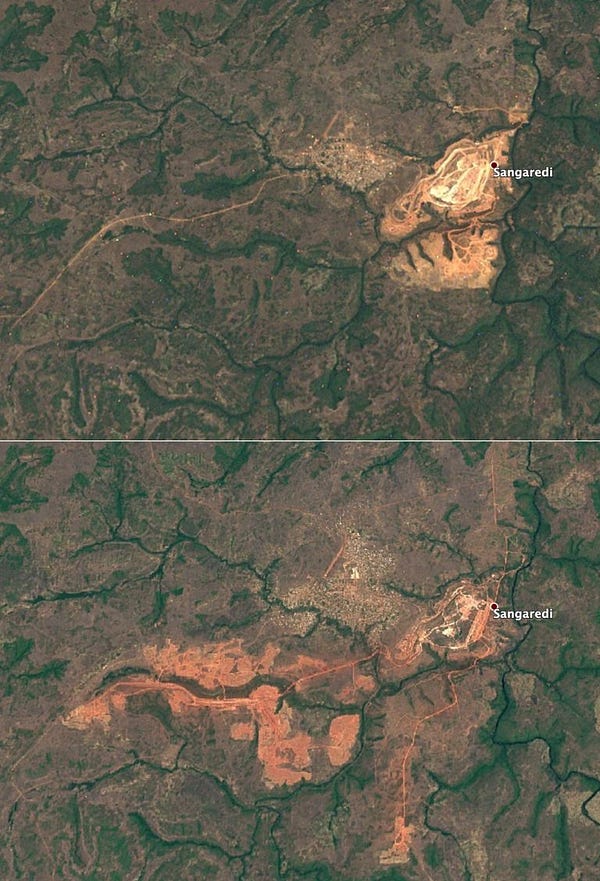In Chile, indigenous groups inch closer to lithium action
And other clean energy mining news nuggets
Community pressure is building against lithium miners in Chile.
Last week, indigenous groups scored an environmental win and used the momentum to call for their government to revoke the license of the No. 2 lithium producer, SQM.
Indigenous communities have long criticized SQM and other producers of corrupting water supply in the salt flats of the Atacama Desert, home to an ecosystem that supports three flamingo species. The region produces at least a quarter of the world’s lithium.
But this is the first time that activists feel they have the public and courts on their side.
The country’s environmental regulator had accepted SQM’s environmental plan last year, but last week, it since rescinded its support. The regulator then announced that it would conduct the country’s first environmental assessment of the fragile region since the lithium and copper boom began a decade or so ago.
“Even though it's for a bad reason, it’s a good moment to show how mining actually happens in the Atacama,” Ramón Balcázar told me. He’s a coordinator in the Plurinational Observatory of the Andean Salt Flats.
With SQM sent back to the drawing board and the regulator accepting that it made a mistake, Chile, a hegemon in clean energy minerals, will be re-evaluating how much mining its lands can take.

Sustainability is in SQM’s marketing.
Weekly InQuarry
What does civil society think of industry’s solution to waste dam failures?
An industry-UN partnership announced the first guidance on building and maintaining tailings dams. Those are the colossal walls that pool muddy waste that mines can’t sell. The dams may be some of the biggest man-made structures in existence.
They’re also prone to unleash devastation if they collapse or burst. There are thousands in existence, but no one is sure how many, because there has never been a comprehensive count. Communities near these dams need to know about the dangers to their lives.
Crucially, the standard does not ban the type of tailings dam in Brazil that burst, killed 270 people, and sparked the creation of the standard. Brazil, Peru, Ecuador and Chile have all banned it.
Center for Science in Public Participation: The standard “does not actually require that safety take precedence over economic and other considerations.” (The Narwhal)
London Mining Network: “Not enough to prevent disaster.” (press release)
Earthworks: “It falls short of what’s needed.” (my story for Mongabay)

Aerial view of the tailings dam above Berkeley Pit, a highly contaminated former copper mine in Butte, Montana, USA. Image by Chris Boyer/Kestrel Aerial.
Indigenous Rights
August 9 was International Day of the World’s Indigenous Peoples, and a bunch of outlets had some great coverage.
An indigenous filmmaking platform, called Tribal Stories, launched on that day, and the website already offers a few films from Brazil and Ecuador. Creator of the Dutch nonprofit behind it told Mongabay: “...if you give the communities the tools and the equipment to tell their own stories, they’re covering what is important to them to tell the world … it’s about amplifying their voices.”
Indigenous feminist Célia Xakriabá from Brazil’s Amazon spoke with the creator of the Vagina Monologues and discussed how “the Amazon is like the vagina of the world.” Covid-19 has been carried into distant indigenous communities by way of miners and loggers.
Oxfam accused Latin American governments of failing to protect indigenous communities from Covid-19, especially as extractive industries have spread the virus to rural communities with low healthcare services. Several government have deemed those industries “essential” and loosened regulations for operations.
Brookings Institution examines cases in Brazil, Peru, and Canada in which extractive industry corruption have marginalized and dispossessed indigenous groups of land, rights, and the wealth generated at their expense.
A few weeks ago, Green Rocks highlighted the suspension of Russia’s nickel giant Norilsk after the miner had allowed a fuel spill. Indigenous groups in the area have now called on Tesla’s Elon Musk to stop buying Norilsk’s nickel to strip support from a company with a long track record of pollution.


Remember last week’s bauxite excavation? Columbia University is launching a tool to track bauxite dust released from mines and threatening Guinean communities.


Eye on Industry
The proposed Pebble Mine in Alaska is catching more and more flak, even from Trump’s own son.
Mining.com released a price tracker for EV battery metals. Price is often the only thing that guides company decisions regarding their battery metals.
(The announcement included a link to a derisive, sexist, quasi-climate-denialist but unfortunately revealing piece that depicts how miners see themselves benefitting from the energy transition.)
Lithium in Serbia? Rio Tinto approved a few weeks ago a feasibility study at a site in Serbia that it says is rich in lithium and boron.
The EV supply chain is dangerously dynamic, and companies and governments that aim to capture part of the market may find that it dissolves in their hands. Indonesia is aiming to become a dominant player in the EV supply chain, but at the same time, batteries without nickel or cobalt are coming into vogue.
The slow resurgence of LFP batteries (over cobalt and nickel-rich batteries) is already driving supply chain changes.
Like the US, Russia is looking to weaken China’s dominance in rare earths.
Reads
These are not endorsements, just food for thought.
Treasure and Turmoil in the Deep Sea (New York Times)
How to Mine the Oceans Sustainably (Scientific American)
Powerhouses: nanotechnology turns bricks into batteries (Guardian)
Rare plant may prevent the first lithium quarry in the US from opening (me for New Scientist)
Europe is going all in on hydrogen power. Why isn’t the US? (Grist)
This Cobalt-Free Battery Is Good for the Planet—and It Actually Works (WIRED)(@ WIRED: A metal can’t “have social problems.”)


Hi! I’m Ian Morse, and this is Green Rocks, a newsletter that doesn’t want dirty mining to ruin clean energy.
These topics are relevant to anyone who consumes energy. If you know someone like that, share freely! Subscribe with just your email, and weekly reports with round-ups and original reporting will come directly to your inbox. It’s free! (for now)




